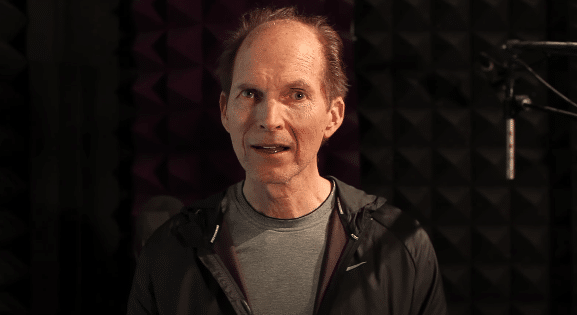Thomas Appell Review – Can You Sing a High C without Straining?
Thomas Appell is certainly one of the most interesting master voice teachers worth looking into.
About 10 years ago, I was looking into the science of singing high notes and Thomas Appell’s book Can You Sing a High C without Straining caught my attention.
I bought the book with the instructional training CDs and went through the entire training materials.
Although I did not follow his singing method later on, I thought his methodology on singing is very intriguing and interesting.
In this review, I will be discussing the most important vocal concepts presented in the book and provide you with an in-depth analysis of his method of singing, particularly hitting extremely high notes.
Can You Sing a High C Without Straining – Review Summary
Product: Can You Sing a High C Without Straining?
Description: This is a vocal instructional book with an audio and video training program produced by voice teacher Thomas Appell, specializing in the methods of singing extremely high notes, as well as song interpretations and other aspects of the art of singing.
Price: From $8.95
Best for: Singers of all levels
Product Rating: 4.5 out of 5 stars
Recommended: Yes!

Who is Thomas Appell and What Makes Him Special?
Thomas Appell is a master voice teacher and vocal coach in Southern California who has trained more than 4000 singers throughout his teaching career.
If you have heard of acclaimed voice teacher Jaime Vendera, Thomas Appell is one of the few teachers that influenced Jaime the most, especially in the area of hitting high notes.
Thomas Appell has been very effective in his training of singers of all levels. He has enjoyed a very successful teaching career as a voice teacher.
One thing that sets Thomas Appell apart from other voice teachers is his specialty in training singers to hit extreme high notes in full voice without straining.
My exposure to Thomas Appell’s school of singing started when I read Can You Sing a High C Without Straining many years ago.
Thomas Appell has presented a couple of very useful and effective vocal methods worth discussing and perhaps applying into your own singing.
Now, let’s dive into the unique vocal methods of Thomas Appell presented in this book.

(Photo from appellvoicestudio.com)
An Inside Look into Can You Sing a High C without Straining?
This popular vocal instructional book is NOT one of those boring theory books filled with technical terms that nobody understands.
Can You Sing a High C Without Straining is actually an easy read filled with a lot of practical information that you can apply to your own singing.
The book is divided into 2 parts – The Fundamentals of Singing and Techniques for Training. The following is the highlights of what’s included in the book.
Book Highlights
Fundamentals of Singing
- Understanding the Vocal Break
- Breathing for Singing
- Why we can sing a High C without Straining
- Understanding Falsetto
Techniques for Training
- How to Extend the Range of Your Full Voice
- How to Develop Vibrato
- How to Develop Style
- Understanding Your Speaking Voice
As you can see from the information presented here, this book covers all the important aspects of singing, including the development of style, vibrato, and even the speaking voice, but hitting high notes is definitely the biggest highlight of this book and training program.
Thomas Appell’s “Secret” Method to Hitting High Notes!
In a nutshell, Thomas Appell teaches a singing technique that Jaime Vendera calls the Zipper Technique in his popular book Raise Your Voice. (Thomas himself doesn’t call it Zipper Technique)
According to Thomas Appell, when a singer sings higher, the vocal cords will be pulled tighter and longer until they reach a point where the cords cannot be pulled any further.
This is where the Zipper Technique comes in.
Thomas teaches that you can train the cords to “zip” from the back to make the vibrating areas of the cords smaller and shorter to get even higher while on a tight pull.

Zipping the cords to sing higher!
When I first read about this technique, I was so excited to try it for myself. Since I didn’t have a teacher to guide me through this, I didn’t go very far.
However, it is obvious that Thomas Appell has successfully trained singers to sing extreme high notes repeatedly, including the famous Jaime Vendera.
Thomas teaches that it doesn’t matter what voice category you are in or what kind of voice you have, anyone can sing higher with this method.
Listen to Thomas Appell sing a high C in this video:
A Little Problem with the “Zipper” method – though brilliant!
It is pretty amazing that Thomas could hit a high C with a baritone voice.
I don’t know about you, but for me, the sound Thomas produces doesn’t sound very good. This is the weakness in Thomas’ methodology – the lack of Formant Tuning.
Formant tuning is the technique of adjusting the color and quality of the sound through the usage of different vowel shapes.
It is kind of like changing the size and shape of the vocal instrument to produce a good sound quality.
I think Thomas’s vocal method doesn’t quite fine-tune the voice to a degree that Formant Tuning does.
This is what the Mix singing method does very well. Master teacher John Henny has a great training course that explains the science behind vocal production and how to safely develop High Belt without overpowering. I highly recommend it!
For Thomas Appell’s vocal method – there is a little issue with the “zipper technique” – recent vocal studies DO NOT support the theory that the vocal cords zip!
Watch this video of a singer’s vocal cords while she sings from low to high. You will see that the cords just keep stretching longer and longer as the pitch rises:
According to Thomas, as you sing higher in full voice, you will reach a point where you have to let go of the “pull” on the vocal cords in order to sing higher, which is falsetto.
The best option, which is what Thomas teaches, is to hold on to the pull and zip up the cords.
Sensationally, it does sound convincing since we often feel like the full voice cannot be taken higher at a certain point without going to falsetto.
However, you can see in the video that the singers being scope is not letting go of the pull, and the vocal cords keep getting stretch longer and thinner in the higher notes.
Respected voice teachers have said that there are no muscles within the vocal cords that can zip.
So, Is Thomas Appell Wrong? I would not say that!
The truth is Thomas Appell has produced great results in his singers over an entire teaching career. You can’t argue with true results!
Does that necessarily mean everything he says is right? No, because nobody has all the answers when it comes to the voice.
Legendary voice teacher Seth Riggs, as well as historical vocal authority E. Herbert Caesari, advocated that the voice dampens or shortens as we sing higher. Recent studies have proven that theory to be incorrect!
Both of these teachers have produced or influenced a whole generation of singers.
Just like what Jaime Vendera says in Raise Your Voice, “…using the visualization of zipping is what got me to sing high notes. Honestly, I don’t even care if zipping doesn’t happen at all…” (Raise Your Voice, p.60)
The singing sensation, which is what the singer rely on for training, is highly subjective. Different singing methods work for different people.
Does the voice teacher have to be scientifically correct to be an effective teacher? I don’t think so.
Is Thomas Appell’s Method Effective? My Conclusion…
Although I do not use imagery or visualization for training singers or in my own singing, I do think it works for a certain type of singer.
After all, an entire generation of great singers was produced in the last century when modern vocal science was not available.
In conclusion, Thomas Appell’s vocal method outlines in his book Can You Sing a High C Without Straining, can be a very effective training program for aspiring singers.
However, if you are looking for a training program based on the most current finding of modern vocal science, I would definitely recommend John Henny’s Vocal Science course for singers!
If you have any questions, comment below and I’ll be happy to discuss with you!(Note: disrespectful or slanderous remarks are prohibited.)
To Great Singing,
Rex








